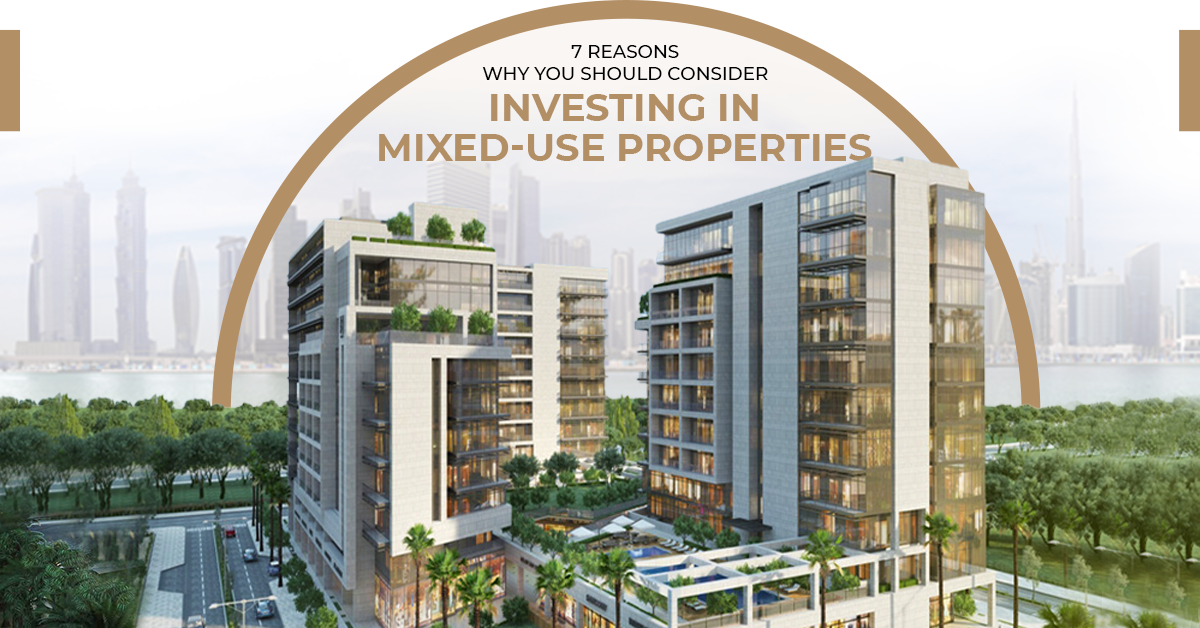7 reasons why you should consider investing in mixed-use properties
Mixed-use properties are anything but a new concept. They have roots in ancient villages and towns, where it was common for apartments and homes to exist above storefronts or for factories, accommodations for workers, stores, and restaurants to be located in close proximity to one another.
However, as stores, factories, and apartments became larger, the idea of mixed-use developments increasingly fell out of favour. But a growing interest in sustainability and affordable development and an increasing demand for living spaces that are accessible to commercial facilities are inducing a comeback for mixed-use properties. So, for investors, such properties can be an attractive option. Keep reading as we look at 7 reasons why you should consider investing in mixed-use properties.
1. They provide a steadier income
If you do not have a high tolerance for risky investments, mixed-use properties are a good option because they are inherently diverse. As they facilitate both residential and commercial businesses, investors can generate a steady income, irrespective of economic setbacks in any segment.
2. Mixed-use properties attract tenants/buyers
Residential spaces are usually a key component of mixed-use developments. In the city of Sharjah, for instance, several large-scale, mixed-use developments are underway because, in competitive markets, they tend to have an edge. Occupants benefit from the property’s access to shopping and services and proximity to work opportunities. This is particularly attractive in cities, where residential communities often lack ready access to grocery stores, health clinics, or office spaces.
3. They allow developers to make better use of space
In cities where space is a constraint, mixed-use developments are more viable. When properties are designed with convenience and accessibility in mind, everyone, from tenants and business owners to developers and investors, benefits. A mixed-use property can decrease the need for parking as well because of space sharing.
4. Businesses benefit from greater footfall
For shops, restaurants, and other businesses that open up in mixed-use facilities, a major benefit is the guaranteed footfall. Unlike independent stores or businesses located in malls, mixed-use properties with a residential component always have people and visitors in the locality. This is beneficial for brick-and-mortar retailers, eateries, and entertainment stores.
5. Electrical and water services are simplified
Mixed-use properties often share electrical and water services. Unlike in pure residential communities, where the upkeep is less efficient, mixed-use properties characterize disruption-free utilities due to their “commercial” aspect. Proactive maintenance also translates to cost savings.
6. Mixed-use developments can be more eco-friendly
While they might appear to have a larger footprint than single-use facilities, they have a lot to offer in terms of environmental benefits. Because tenants and visitors have access to a variety of services in one spot, this can reduce a lot of vehicular movements. In a sizeable mixed-use facility, limited movements have good implications for air quality and pollution control.
7. They can promote equity
Studies on mixed-use developments suggest that they may be the answer to enhancing equity for lower-income populations. As lower-income residential properties are often in less desirable areas, the livability in such localities can lag behind the overall standards. “Commercialization” often accompanies refinement in terms of better healthcare, safety standards, accountability, etc. — all adding to more equity. For investors, these benefits stack up to a potentially profitable and stable addition to the portfolios.




